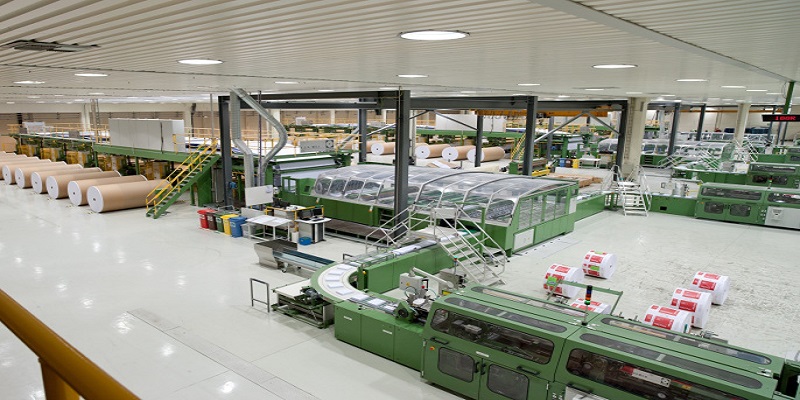The two most popular categories of packaging companies are manufacturers (they produce, and sell the finished packaging) and distributors (they also resell finished packaging). And these two categories can also be classified as subsets of larger categories which include business promotion or promotional packaging, trade show packaging, and shipping packaging.
There are three broad kinds of packaging, and these are household packaging, industrial packaging, and custom packaging. Household packaging is the type that’s used in grocery stores and pharmacies, and is sometimes called counter packaging. Industrial packaging is that which you see on supermarket shelves, and custom packaging is that which you see on products that are manufactured exclusively for a company’s products.
Large Corporations
Most large corporations have their own packaging manufacturer and distributor, and they outsource other packaging tasks to smaller firms that specialize in packaging. For small businesses, however, it’s usually a case of “have your own do it yourself factory” – meaning that you get a custom-packaging manufacturer to do most of the work, and subcontract, other tasks to people who are willing to do them for less.
That means that most small manufacturing firms are “small business operators” – they don’t have thousands of employees, and they don’t have huge R&D labs devoted to developing new packaging methods and materials. So even if you’re planning to start a small packaging company, it’s worth speaking to local small business owners about what they need done in terms of packaging, since the bulk of packaging is typically done by in-house packaging manufacturers.
Manufacturer Designs Of The Packaging
The job of a packaging manufacturer is to figure out what works – and what doesn’t. After that, the manufacturer designs the packaging to match the end result that customers want, whether it’s for the beverage, electronics, food, medical supplies, or cosmetic products. A successful packaging designer will be able to think creatively through different shapes, sizes, and forms, and they’ll also have the inside know-how to choose from an impressive array of raw materials.
But in order to make their vision a reality, packaging companies need to find an experienced manufacturer who can build the prototypes they design and place the final packaging right – so that it looks attractive and is well-performing. So how do you find a good manufacturer who can fulfill all your packaging needs?
Licensing Requirements For Packaging Design
Start by checking with your state’s regulatory agencies to see if there are any licensing requirements for packaging design or structural design. Each state has differing regulations, and some may be particularly strict. In addition, the structural design and materials that a packaging design company uses may have a bearing on its ability to earn a living.
Structural design is often the foundation of many packaging solutions, so finding a firm that has experience in that field may be the key to getting your product manufactured and delivered in a timely manner. However, because of the highly specialized nature of packaging design, it can be difficult to find a manufacturer who specializes in both fields. For that, you might want to consider working with a marketing firm.
Working Of Marketing Firms
Marketing firms primarily work with packaging companies like Custom Boxes Market, to help them develop and market new product lines. A good marketing firm will know that packaging design and structural designs are best for a certain product line, so that they can show retailers exactly what impression they should create in order to attract the most customers.
Additionally, they will help packaging companies secure the distribution rights to distribute a product line. Because some product lines are very expensive to produce and distribute, a good marketing firm can help a packaging distributor secure the distribution rights by offering a partner discount. This partnership can result in significant savings for the distributor, which helps to increase the overall profit margin for the retailer.
Marketing firms will also consult with a packaging manufacturer in order to help determine the amount of inventory that a manufacturer will be able to handle. Packaging manufacturers rely heavily on the volume of product they can handle at any one time.
A large inventory can cause supply delays, which can have a negative impact on the quality of products. Marketing consultants can help a packaging manufacturer to determine how many packages a manufacturer is able to handle, which can increase profitability significantly. It can also help a packaging company decrease inventory requirements by having the manufacturer to distribute the product in bulk.
Popular Packaging Solutions
One of the most popular packaging solutions currently available by the majority of packaging companies is paperboard. Paperboard is a strong, durable material that has been successfully used to create many different consumer products. Because of its durability and superior tear resistance, paperboard is often used as the backing for food and grocery bags.
By using paperboard, food, and grocery stores can reduce the cost of producing paperboard bags by reducing the number of bags needed per shipment, and increasing the number of sales per month. Many paperboard products are also able to stand up against other plastic options, such as polystyrene.
Corrugated boxes are an important part of many business packaging services. These boxes are typically manufactured in China and then shipped to a variety of packaging companies all over the world. Corrugated boxes are commonly used for shipping, because they provide both good packaging services and cost efficiency.
Corrugated boxes are made out of cardboard, and they offer excellent packaging services. They feature cardboard clasps, which can keep the box secured and closed, which is important for any business with products that need to be protected from the environment.

